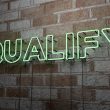Drug crime convictions can be financially devastating. Serious drug crimes can result in lengthy sentences. Convicted defendants are often forced to default on mortgage and car loans. Even defendants who face a short sentence or no jail time are at risk of losing their jobs, leading to a loss of housing and the inability to pay credit cards and other debt.
Filing bankruptcy sometimes helps people who are accused or convicted of drug crimes regain control of their financial lives. If you are considering that option, be sure to discuss it with both your bankruptcy lawyer and your criminal defense attorney so that you can make a fully informed decision.
Bankruptcy before a drug conviction
Many people who are accused of drug crimes are also drug users. Illicit drugs are expensive. Addicts feel compelled to spend their income on drugs instead of their other obligations. As their lives spiral out of control, they run up credit card debt and stop making payments on car loans or mortgages.
Using bankruptcy to regain control of your financial life is only a short-term solution if you cannot maintain control of your drug habit. Before you turn to bankruptcy, you should find a treatment program. Many programs charge fees on a sliding scale, so you should be able to find one you can afford.
If you are charged with a drug crime, getting treatment on your own, before the court orders you to do so, will benefit you. A bankruptcy, on the other hand, might not. Some judges understand the need for a drug defendant to get a fresh start on life, but others view bankruptcy in a less positive light. Talk to a drug defense law firm about whether it makes sense to hold off on a bankruptcy until after you are convicted.
Of course, there are circumstances under which a bankruptcy filing may be your only option. In those cases, consider filing under chapter 13. If you have a legitimate source of income, you can set up a debt repayment program under the supervision of the Bankruptcy Court. That will allow you to save your home from foreclosure while preventing creditors from pursuing other collection activity. It also gives your criminal defense lawyer the opportunity to tell the judge that you are taking responsibility for your debt by repaying it. The judge may view that as a sign of good character when it comes time to impose a sentence.
Bankruptcy after a drug conviction
After you are convicted, you may be facing fines and restitution. Fines cannot be discharged in a bankruptcy. Fortunately, judges do not usually impose large fines in drug cases unless the defendant has significant resources.
Bankruptcy courts also view court-ordered restitution as a debt that cannot be discharged. In a drug case, restitution is usually ordered only if the defendant received “buy money” from a government agent in exchange for drugs. If the court orders you to repay that money, you will not be able to discharge that debt in a chapter 7 bankruptcy.
If you are ordered to pay restitution, you might be able to include the debt in a chapter 13 debt repayment plan. A chapter 13 allows you to repay debt over a period of 5 years. If you have not paid restitution in full by the end of the plan, you may be eligible to file a new plan, giving yourself another 5 years to finish repaying the “buy money.”
If you still have a job after you are convicted of a drug crime, chapter 13 is a good option to help you with the debt that you incurred before the conviction was entered. If you qualify, a chapter 13 plan allows you to catch up on your secured debt (like mortgage and car loans). You make your regular installment payments each month while making an extra payment to the chapter 13 trustee that is applied to your “past due” balance. Unsecured debt (like credit card bills) is wiped out at the end of the plan, even if you did not repay those debts in full.
Using a chapter 13 can help you put your financial life in order while you are dealing with the other consequences of a drug conviction. If you have no secured debt or your income is not sufficient to continue making current payments on secured loans, a chapter 7 can help you start fresh by wiping out most of your debt. Your bankruptcy lawyer will help you decide which approach will best help you cope with the aftermath of your drug conviction.




